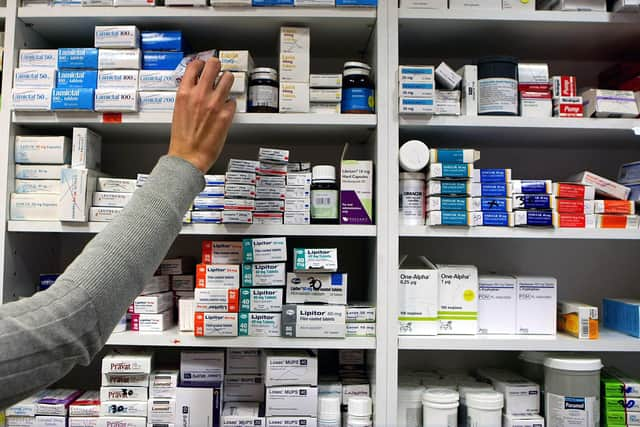Pharmacists are skilled healthcare professionals that represent a untapped resource in our NHS - Andrea Leadsom
Four in five people in England live within a 20-minute walk of a community pharmacy. Pharmacies provide fast, fair and simple access to care and advice for the kinds of illnesses from which people suffer every day. Our constituents can now walk in off the high street whenever it suits them - whether they are at home, at work, or visiting somewhere.
Our pharmacists are not only conveniently located, but highly skilled professionals with years of training under their belts. The number of registered pharmacists in England has grown considerably under this Conservative Government—up 61 per cent compared with 2010.
Advertisement
Hide AdAdvertisement
Hide AdNonetheless, these skilled healthcare professionals still represent a rather untapped resource in our NHS, so the Government is bringing forward reforms that will make the most of their expertise: giving people up and down the country a variety of quality care and wise advice, quickly and easily, saving them a trip to the GP; freeing up appointments for patients who need GPs the most; and driving our plan to cut waiting lists.


The benefits are clear. That is why this Government has consistently taken the decisions that allow community pharmacists to deliver more clinical services and supply more treatments - whether that be other parts of the NHS referring patients suffering from minor illnesses to community pharmacists for advice and the sale of over-the-counter medicines, offering lifesaving blood pressure checks in pharmacies, or making it easier for women to access oral contraception in pharmacies. I am proud of everything that we have accomplished so far.
To unlock the full potential of our pharmacists, we need to go further and faster. That is why we are launching the Pharmacy First service - a personal priority of the Prime Minister, who is himself the son of a pharmacist. This will give pharmacists the power to supply prescription-only medications, including antibiotics and antivirals for seven common conditions: sore throats, ear aches, infected insect bites, impetigo, shingles, and minor urinary tract infections in women. More than 10,000 community pharmacies have signed up - over 95 per cent of pharmacies in England - which is a brilliant sign of their approval.
The next time that anyone is suffering from any of those seven conditions, for most people their first port of call will be a quick trip or a call to their pharmacist. They will not need to see their GP first. They will not need to spend time making an appointment, and they can turn to their pharmacist whenever it suits them.
Advertisement
Hide AdAdvertisement
Hide AdThat benefits everyone involved: people get the care they need faster; GPs can focus on more complicated cases; and pharmacists can make better use of their knowledge and skills. This is a common-sense reform.
It will free up as many as 10 million GP appointments, in turn reducing unnecessary trips to A&E, reducing the pressure on GPs, and driving forward our plan to cut waiting lists for patients.
An abridged version of a speech by Dame Andrea Leadsom, Parliamentary Under-Secretary at the Department of Health and Social Care, in the House of Commons.
Comment Guidelines
National World encourages reader discussion on our stories. User feedback, insights and back-and-forth exchanges add a rich layer of context to reporting. Please review our Community Guidelines before commenting.